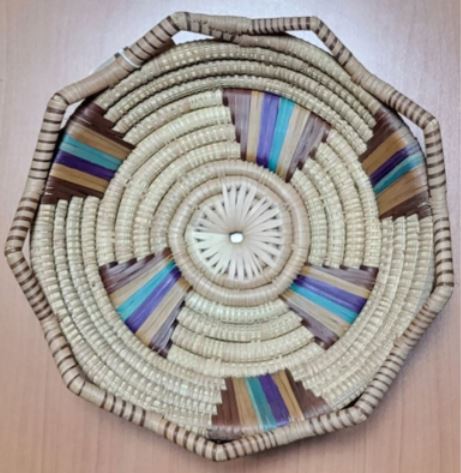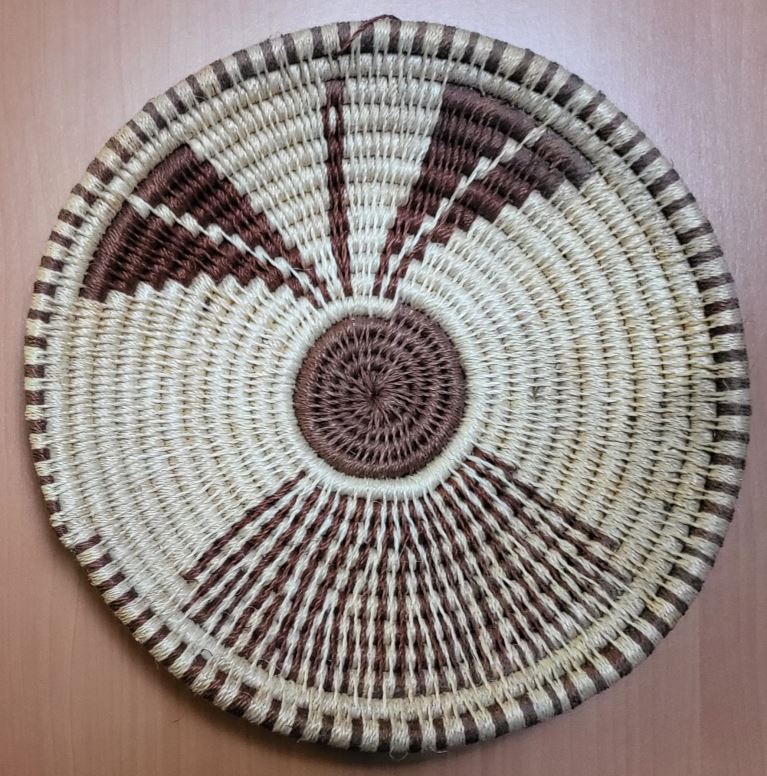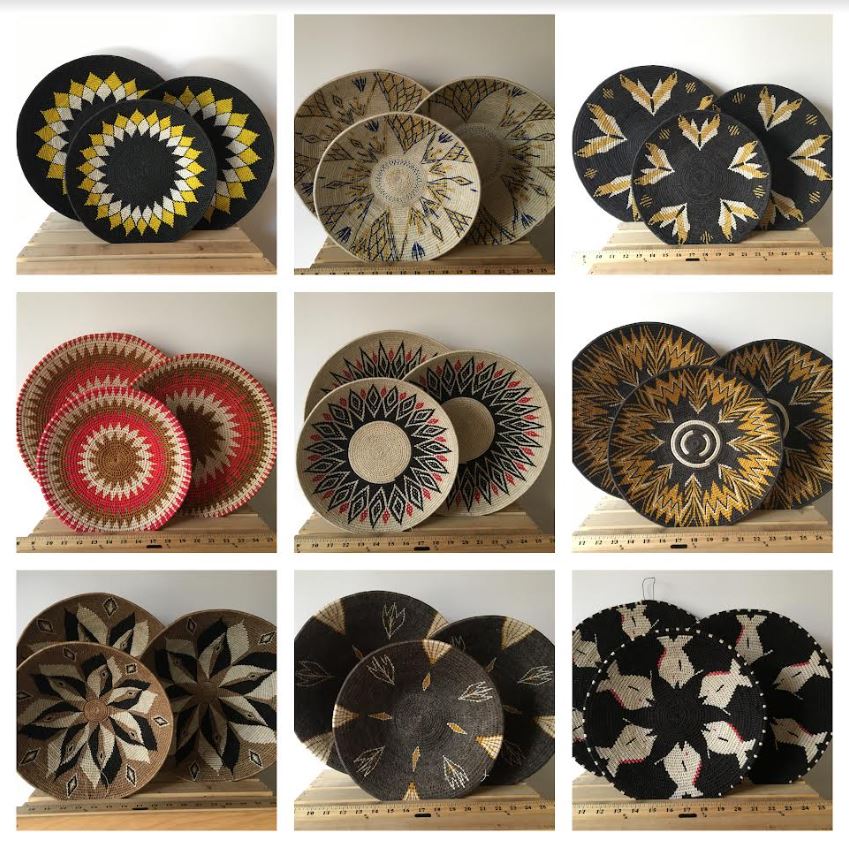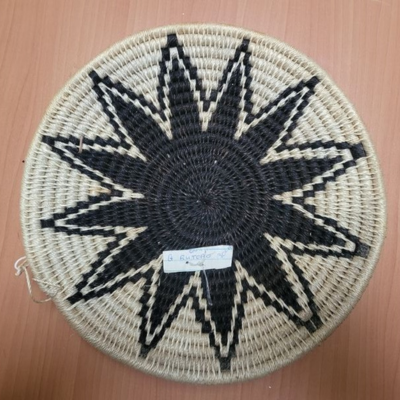From Baskets to Art: Exploring the World of Reed Weaving in Zimbabwe | ZimHolidayandArt.com

Historical Significance of Reed Basket Making: Reed basket making has a long and storied history in Zimbabwe, dating back to ancient times. These baskets were originally crafted for utilitarian purposes, such as carrying food, water, and other essentials. Over time, the art of reed basket making evolved, incorporating intricate patterns and designs that reflected the cultural identity of different communities.
Uses Beyond Baskets: While baskets remain at the core of reed weaving, Zimbabwean artisans have expanded their creativity to produce a wide range of products. Today, you can find reed-made items like hats, mats, ""Home"" decor, and even musical instruments. These products not only serve practical purposes but also showcase the versatility of reed as a material.
The Artisans: Reed basket making is a skill passed down through generations, with artisans often learning the craft from their parents and grandparents. These skilled individuals dedicate their time and expertise to creating exquisite pieces of art. Each artisan brings their unique flair and creativity to their work, resulting in a diverse array of designs and styles.
The Process of Reed Basket Making: Reed basket making is a labor-intensive process that starts with the harvesting of reeds, typically from wetland areas. The reeds are then carefully cleaned, dried, and dyed using natural pigments to achieve vibrant colors. Artisans meticulously weave the reeds into intricate patterns, with some designs holding symbolic meaning or telling stories of local traditions.
The Products and Their Uses: Reed-made products serve both functional and decorative purposes. Baskets are still used for carrying goods and storing items, while mats and ""Home"" decor items add a touch of Zimbabwean culture to living spaces. These products often feature traditional motifs and colors, making them both practical and aesthetically pleasing.
Selling Reed-Made Products: Reed-made products are often sold in local markets, craft fairs, and even online platforms like The Zienzele Foundation online shop. These avenues allow artisans to showcase their work to a global audience while providing a source of income that supports their families and communities.
Reed basket making in Zimbabwe is not just a craft; it's a celebration of heritage, creativity, and tradition. The historical importance of this art form is reflected in the diversity of products created and the dedication of talented artisans. When you purchase a reed-made product from Zimbabwe, you're not only acquiring a beautiful piece of art but also contributing to the preservation of a cherished cultural tradition and supporting the livelihoods of local artisans.

The Zienzele Foundation: Fostering Growth in This Handicraft.
The Zienzele Foundation is a non-profit organization that works to empower women and children in rural Zimbabwe through sustainable development programs. Founded in 2000 by Dr. Prisca Nemapare from Zimbabwean and Nancy Clark, from the USA, the foundation has a strong focus on community-based initiatives that promote self-reliance and economic independence. The foundation is deeply committed to empowering women through basket weaving cooperatives.
They offer essential support, including training, access to materials, and market linkages, to help these women generate income and provide for their families.
It's important to note that their baskets are now exclusively crafted from sisal fiber, a sturdy and sustainable material extracted from the sisal plant. This choice is not only eco-friendly but also practical, as the regions where they operate have limited access to wetlands and reeds traditionally used for basket making.
Key Programs and Initiatives
The Zienzele Foundation's work encompasses a range of programs designed to address the specific needs of women and children in rural Zimbabwe. These include:
Basket Weaving Cooperatives: The foundation supports women's basket weaving cooperatives, providing training, access to materials, and market linkages to help women generate income and support their families.
Microcredit Programs: The foundation offers microcredit loans to women entrepreneurs, enabling them to start or expand small businesses and achieve financial independence.

Sisal Fiber: A Versatile and Sustainable Material


signed by G.Rutoro
Education and Skills Training: The foundation provides educational opportunities for women and children, including literacy and numeracy programs, vocational training, and life skills workshops.
Child Care and Nutrition: The foundation supports child care centers and nutrition programs to ensure that children have access to essential care and nourishment.
Impact and Recognition
Over the past two decades, the Zienzele Foundation has made a significant impact on the lives of thousands of women and children in rural Zimbabwe. The foundation's programs have helped to alleviate poverty, improve livelihoods, and empower women to take control of their futures.
The Zienzele Foundation's work has been recognized by various organizations, and has been featured on Keepers of the Earth Fund (KOEF). This an Indigenous Led Fund within Cultural Survival designed to support Indigenous Peoples’ community development and advocacy projects.
Zienzele Project on Keepers of the Earth Fund
Continued Commitment to Empowering Women and Children
The Zienzele Foundation remains committed to its mission of empowering women and children in rural Zimbabwe. The foundation continues to develop and implement innovative programs that address the most pressing challenges faced by these communities.
Through its dedicated work, the Zienzele Foundation is helping to create a more just and equitable society in Zimbabwe, where women and children have the opportunity to reach their full potential.
Explore the world of reed basket making on ZimHolidayandArt.com, where you can discover a wide range of these beautifully crafted creations that tell the stories of Zimbabwean culture and craftsmanship. Each piece represents a piece of history and a testament to the enduring spirit of Zimbabwe's artisan community.